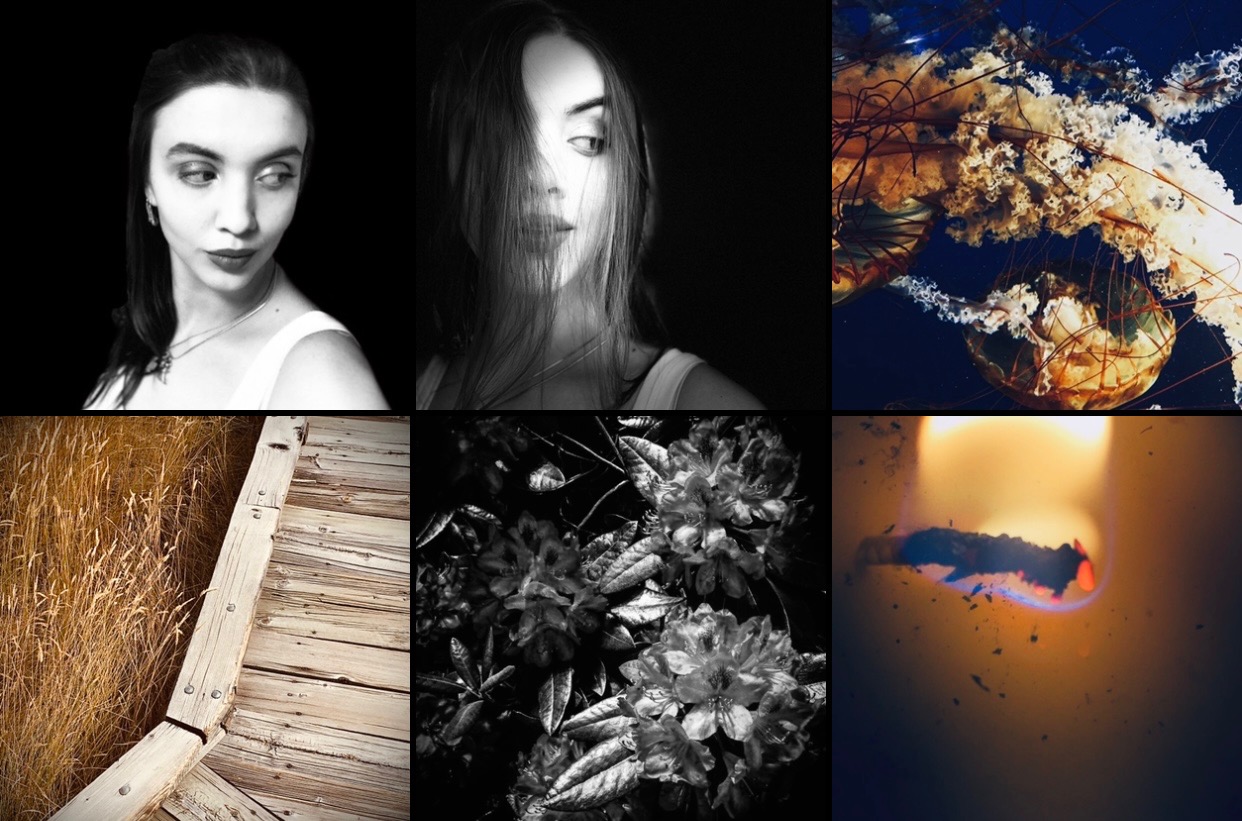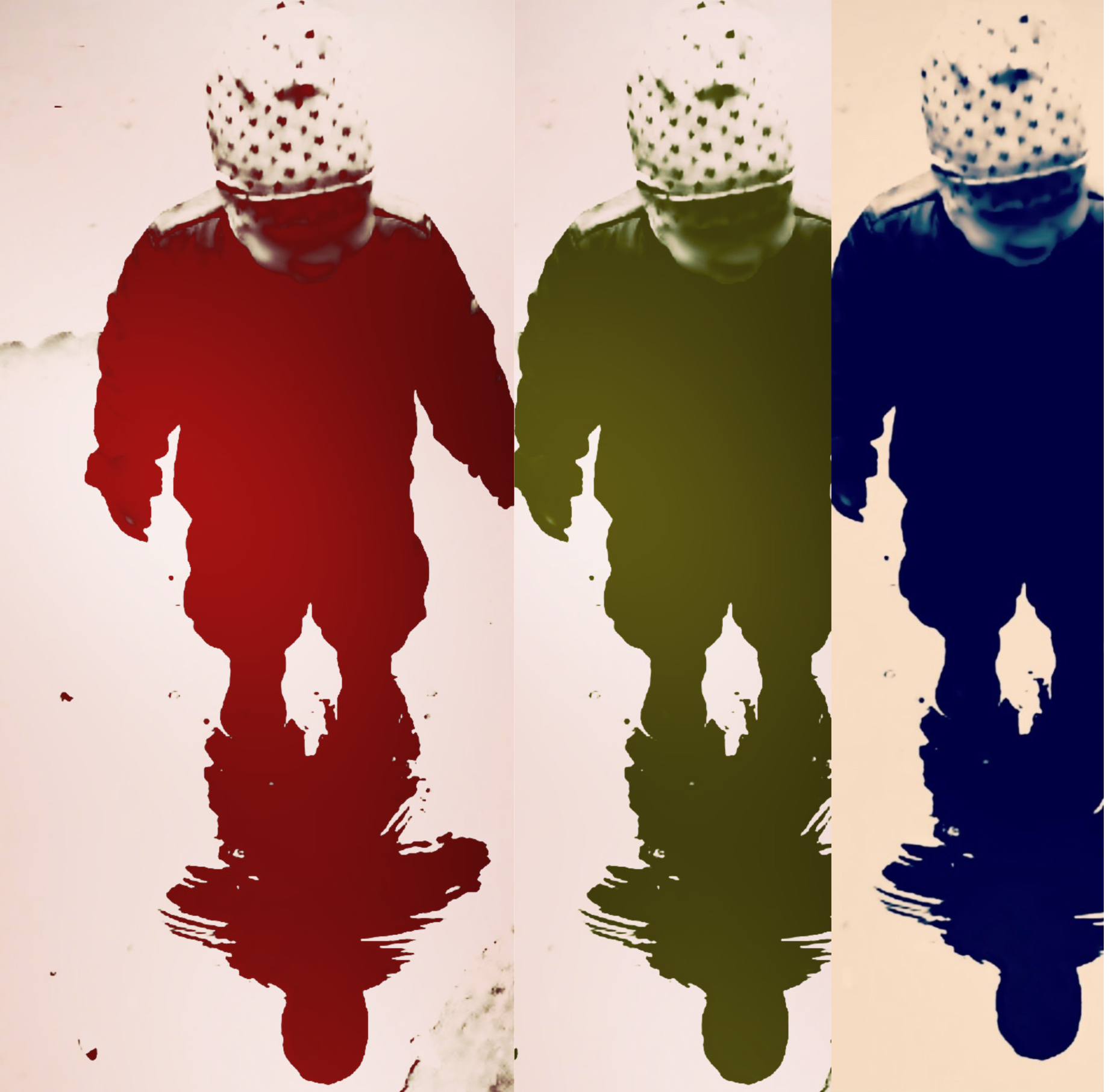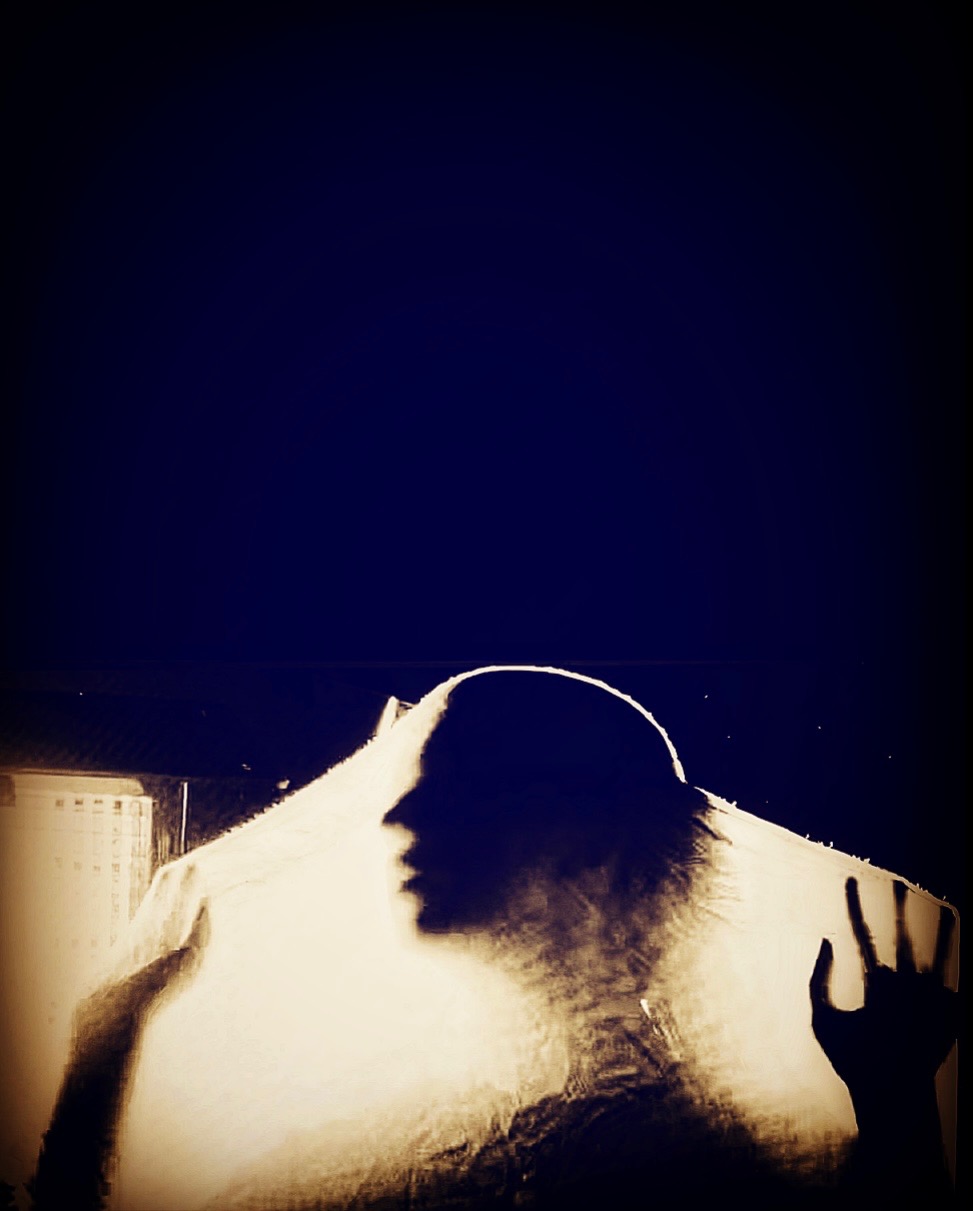Francesca: I’ve been acquainted with your work for quite a while now, and despite the continual shifts in my life philosophies and artistic sensibilities, I still find that I can return to your films time and time again and connect to their sobering honesty and vulnerability. For me, there is something very moving about how they embrace the literal until they transcend the mundane to reveal an almost mystical portrait of the human condition. Similarly, whenever I’ve watched one of your found footage pieces, I have felt, through imagery that on its own is deeply impersonal, an intimate and tender connection, such as one might feel upon rewatching their own family’s home movies. It seems that within the noise of civilization, which public sphere images only tend to add to, as an artist, you are able to trace the fragile and ephemeral, but also to unearth the existence of human-based phenomena, emotions, and states-of-being unthreatened by time or physical decay.
I believe the latter to be the case in your found footage pieces such as Hey Madonna and Glass, which evocatively embrace the impartial and fragile to tap into the more metaphysical realm of human senses and being. The same can be said of your film 23 Thoughts About My Mother, which you so kindly forwarded following our last interaction.
Upon viewing the piece, my assignment partner and I discovered a shared interest in how strikingly your choice of film form juxtaposed the film’s delicate subject matter and your equally personal relation to the subject. Unlike your other found footage work, 23 Thoughts About My Mother does not explore inherently universal themes. Hence, the detached public images you employ create a more graphic contrast to the intimately specific reflections on your mother’s legacy. We wondered what compelled you to resort to the found footage form instead of solely home videos and family images in constructing such a visceral portrait of your parent?
Mike: The recurring dream is that I am in a car, but not in the driver’s seat. Not a big surprise perhaps because I never learned how to drive. But as the car rolls down the road, the dream slowly shows me that there is no one behind the wheel. The enduring fantasy is that I make decisions, and that the accumulation of these decisions, large and small, are what I name as my life. But I never chose my family, my best friend, the people I fell in love with, even the subjects of my movies, or the decision to make movies in the first place.
Both my parents were deeply marked by the Second World War. Mother lived in Indonesia which was invaded by the Japanese. Her father was taken away to a grim place she knew nothing about, while the rest of the family was marched to a prison camp. Many relatives died. They lost everything, including the lives they imagined they were going to have. When the war ended they fled to Holland, a country they hoped would bring them safety. A few years later she met my father, by accident, and because he was determined to avoid compulsory military service—his own anti-war reaction shot—they moved to Canada.
Racism, war and illness, these large currents swept her across the world, and both allowed her to reinvent herself, and delivered her to the fragile divide between life and death. How to make a picture of these impersonal forces? Why continue to pretend that she is an autonomous being, separate from the world that touched her with every breath and conversation? My mother had a dozen best friends, so I thought it was important that my portrait of her might contain, as a poet once wrote, multitudes.
I should also mention that my mother’s faith did not exclusively turn towards the Christian church. She believed in psychology, as I do, her faith decreed that each person, even places or countries, have an unconscious. And that it functions unconsciously. How could one begin to make an image of the unconscious except to stuff a movie full of what doesn’t seem to belong, or at least, make room for tangents and digressions?
In place of her first memory (nuns selling milk door-to-door in the tropical heat of Indonesia) there are nuns tending a garden. Nothing remains of her house, it burned to the ground one night, as she described waking with a start, searching anxiously for her family as the smoke grew around her, only to find the whole family already outside, watching their life flame out. I used the pictures of other houses, other burns, in order to conjure this one. The collage ends with a photograph of two children holding up a blank piece of paper. The bright sun behind them projects their shadows onto the paper, as if they had become shadows of their former selves. This image of loss and childhood seemed to point at what my mother had too often recounted for us.
Francesca: If I’m not mistaken, the poet you’re referencing is Walt Whitman. I believe he was the one who said, “I am large, I contain multitudes.”
In terms of film authorship, and found footage form, do you find the same to be true? Are all found footage pieces, regardless of how personal, ultimately a convergence of minds and influences? A collaboration? Or do you believe that a found footage filmmaker can own or claim authorship over images otherwise impartial, as long as they are imbued with the artist’s own story and sensibilities?
Mike: If Whitman were still alive, that line would likely have been amended, as he was a compulsive rewriter. Perhaps the last words he reworked would be his own name and gender.
When I became HIV positive I contracted an illness that never left. It became part of me. Or was I part of it? My friend Brian is a surgeon, and he assured me that the interior of every body, no matter what age, is beautiful. What I learned after diagnosis is familiar to every student of biology, that our bodies are home to a fantastical variety of beings, chemistries, tissues, all operating in concert with each other. I had been trained to believe that my body was the border of my self, how else to imagine the self under capitalism except as property? But being positive blew up that old idea. Just as there is nothing inside the skin organ that is not a collaboration, there is nothing outside that is not a conversation, whether it’s breathing or writing a poem. The fatal separation that capitalism would like us to believe in is the root of our climate crisis which, as scientists assure us, will mean the end of the human experiment in a century and a half. The cover story of this separation, which is a fable of the ruling class, a myth that permits them to horde money and resources that belongs to all of us, goes by many names. The rights of the individual. Authorship. Copyright. No surprise that it is large corporations that are forever in court fighting copyright battles, marking out turf that they can privatize and sell. The idea of the author is not only wrong, it is fatal.
Francesca: I can discern the strong presence of a Buddhist philosophical undertone within your thread of thought, from an allusion to non-attachment of “self” to product and belongings (such as artist to a piece and to copyright), to an unmistakable belief in collective consciousness as well as cosmic interconnectedness between individual, community, and nature.
Nonetheless, if an artist surrenders control over pieces they have contributed to, and acts as a cell within a network of equally important collaborators, is there any opportunity left for the artist to understand who they are in full—perhaps not removed from the world, but rather within it? As my favourite poet, Leonard Cohen, once suggested, “Let’s be alone together.” Do you think an artist could be “alone together” in our modern world?
Mike: Shunryu Suzuki was one of the most beloved and well-known Zen teachers in North America. After uninspired beginnings in Japan, he found himself after coming to America, where his tortured English and native agent authenticity inspired generations of practitioners. His Zen Mind, Beginner’s Mind remains a classic, though anyone that has heard him speak can vouch that he is not the author, instead, dedicated students, native English speakers born and raised in California, wrote the book based on his teachings. In classic Zen fashion, the author is not the author. My favourite Suzuki story recounts his shopping trips for the San Francisco Zen Center. At the market he would pick out only the most abused and rotten vegetables for the sangha’s meals, feeling that these precious lifeforms had been overlooked. Dispirited cooks conjured a host of distractions to keep him from his vegetable philanthropy so that they could make meals everyone could enjoy.
Leonard Cohen is arguably the most well-known Zen practitioner in North America. My favourite Cohen moment comes after the five year slog that led to his most perfect record, Various Positions, in 1984. It includes the song he opened every concert with, Dance Me to the End of Love, along with Hallelujah, and a raft of other gems. He had begun using a child’s Casio keyboard to compose, replacing the Spanish guitar he played in all previous outings. But Columbia record label execs were unconvinced. President Walter Yetnikoff famously told him, “Look, Leonard; we know you’re great, but we don’t know if you’re any good,” and refused to release the record in the US. Cohen laboured for nearly a decade without a record contract. It was only luck, and the help of his lady pal Jennifer Warnes, that rescued him from obscurity. His moment of triumph should have been the end of his career, instead, a hit single by Warnes (was it (I’ve Had) The Time of My Life?) gave her the leverage to offer him that rarest of opportunities. A second chance.
If you had asked me your difficult question about subjectivity when I was twenty I might have given you an answer. I knew everything then. But with each passing year, I understand less. I don’t know how to be alone together, though I think I used to, when I went to the movies. When I sat in the classroom. These gatherings created a mirage of community that I was eager to embrace, so long as the picture didn’t touch back. So long as the unrehearsed conversations could be kept to a minimum, that chance encounters could be unmet. Perhaps it’s because I learned how to have a self by becoming someone else. I copied, in other words. Perhaps the core of who I am has something to do with copying. Certainly that is what biologists would say about my DNA, or as Marcus Boon wrote “Consider sexual reproduction as collage. The cutting up and combining of mother and father’s DNA.”
Francesca: Due to experimental film’s reputation as a personal genre and your work’s pinpointed tenderness, which is hard to attribute to the general, impersonal, or anything else besides your voice, I find myself tempted to delineate what constitutes the autonomous and unadulterated “you” within your found footage pieces.
Nonetheless, your interpretation of the self, or your “self,” seems to lean towards a view of identity as an impressionable vessel guided by and filled with borrowed and copied collective influences. Through your reflections, it almost appears that you are not your life’s shaper but that life shapes you instead. It is as if your life does not belong to you, but rather you belong to it.
You have previously mentioned, “I never chose my family, my best friend, the people I fell in love with, even the subjects of my movies, or the decision to make movies in the first place.” Similarly, when referring to your experience with HIV, you remarked, “It became part of me. Or was I part of it?”
Therefore, I am left to wonder if you believe your found footage pieces contain any grains of innate, unaltered personhood. Or if you distrust the concept of built-in character and instead believe that the artist is a “tabula rasa,” a potential collage that arrives only via interactions with the world?
Mike: I can hear the urgency in your question(s), it lends them energy and sharpness. If we were in the same room I would want to nod along and say yes. It makes me wonder what is at stake for you in this question of the voice, the perfectly singular and never-to-be-repeated voice of the artist, whether it is sung through paint or words or moving pictures. We are both embedded in a culture that lifts up some voices, providing endless staging models of experience for some folks, while leaving others unrepresented and unheard. I wonder if you feel there are moments when you were forced to look on helplessly as someone else, less driven, not particular smart or talented, but they came from money, they never questioned their right to belong so they opened every door that was put in front of them, while you were still waiting for the door to appear again, never mind open. What I hear in your question (and perhaps I’m getting this all wrong, this is all happening over email after all, a medium that is notoriously poor for in-depth conversations of any kind, and we’ve never met) is that you want to tell me a story. Or perhaps I could simply ask: could you tell me a story, describe some instance when you found yourself speaking in a voice that was truly your own, and how that felt different from the other times, when you spoke in someone else’s voice.
Francesca: I had a somewhat nomadic upbringing, my family relocated to a new city or country every three years. I was taught to slip in and out of learned cultural customs and languages based on necessity. I still do that to this day. Granted, I couldn’t define myself by any of the voices I’ve picked up along the way. All are familiar yet impersonal. Most are performances of identity or, better said, identities that are not mine. The only time I speak in my own voice or language is when the discussion unfolds around music, film or literature. No biographical detail or culture could paint a better portrait of me than the mention of art that has moved me.
Although I did not initially set out to tell a story, I confess your detection of my urgency is accurate. I believe it arises from a need to ensure a sense of identity devoid of community, partly since I don’t have a default demographic or geographic setting that I could parallel to my personhood. Community is an environment I infiltrate, learn to love, and ultimately leave behind. The closest I’ve come to belonging someplace is in Toronto, an eclectic city in a mosaic country, but I have yet to see if it is just another pit stop.
When I was fourteen I came across Nietzsche’s claim that “God is Dead.” The discovery left me amused, although otherwise emotionally unaffected. But talking to you made me realize that I could react impartially to God’s death because my universe is held together by the iconographic entity of the artist, a position that your viewpoint heavily counters. In my life, film theatres act as places of worship, and good books are a substitute for holy scriptures. Songs, especially of the blues variety, double as prayer.
So to have you, an artist, suggest that there is no Mount Olympus, no driver behind the wheel, and no divine individualism within the artist comes as a shock. In my eyes, real artists are fundamentally creationist figures capable of promise and hope. They are human but contain an element of the mystical that can be aspired towards. In my twenty-one years, I’ve surrendered to environments and networks, but I crave to belong, if not to a place, then to artistry as a system of beliefs and practices.
Mike: I think sofar as the interview goes, there is nothing more that needs to be added. The subtext, the urgencies that started the project, feel clear. Thanks for sharing your thoughts and insights with me. I can only imagine what it must feel like to be taken away from all of your temporary homes, or the question of how to hold onto the warmth that must have accompanied every promise of arriving, of at last belonging.
I’ve been thinking (though in truth the thoughts are unbidden, it’s more like I am being thought) how restrictions have shaped my life. Restrictions being another word for fear or wounds. I have a friend who plays in a band, and I can see the joy it brings him to create with others. I’ve often tried my hand at collaboration, and it’s come off a few times, but most often not. I am, as you describe for yourself, busy collaborating with books and pictures, and dialogues about them, but it’s not quite the same as the electricity running through my friend. The question is about connection, how to feel that flow. It’s what makes me feel alive, though for many hours of the day I seem content to work hard in the other place, which is not quite alive, but somehow safer. Or that is the fantasy. Thanks for making this interview possible, it’s felt good.


